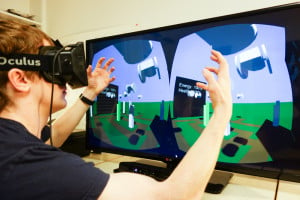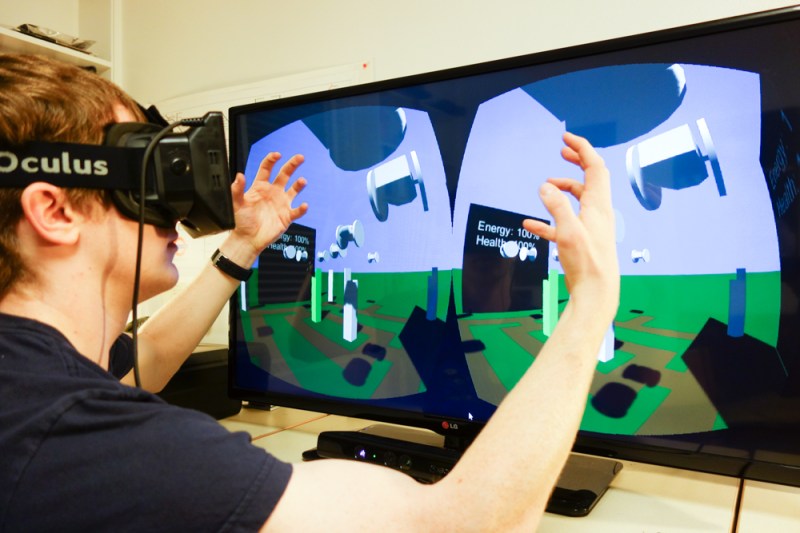
Courtesy of Rahim Ullah
Despite Stanford’s technological pedigree, hacking culture on campus has struggled to keep pace with the constant output of coders and startups, according to students active in the scene.
“Stanford is much more focused on entrepreneurship,” said Karthik Viswanathan ‘15, president of the Stanford Association for Computing Machinery (ACM). “A lot of people are just interested in building products that will make a lot of money.”
Contrary to popular belief, hacking–a sometimes-misleading label that belies the activity’s creative implications–is actually the general term for building software or hardware outside a classroom environment.
“Hacking is building something because you love to build,” Viswanathan explained.
Viswanathan framed hacking as essential to the process of becoming a truly effective programmer, given the inherent opportunity for participants to learn about the tools currently used in the computer science industry.
Mike Swift, the founder of Hacker League and commissioner of Major League Hacks, echoed Viswanathan’s sentiments. While he acknowledged the value of academic coursework, Swift argued that learning must also happen outside the classroom.
“[Computer science] is not the one-size-fits-all answer for being a programmer,” Swift said. “We have all these resources out there like hackathons and hacker spaces and learn-to-code programs that can supplement what you’re learning…Hacking may not even touch on computer science.”
Both Swift and Viswanathan described hackathons as one of the best places for programmers to begin to explore the full potential of programming. Hackathons are typically 24- or 36-hour marathon coding events with attendance ranging from a few dozen coders to over a thousand.
“Hackathons are all about taking a cool idea or technology and learning how to build it,” said Rahul Gupta-Iwasaki ‘14, a computer science major and ACM officer. “All it takes is [that] you want to do something and your creativity.”
Hackathons are hosted on many college campuses across the nation. This year, three students from the California Institute of Technology (Caltech) inaugurated hackTECH, which attracted over 1,500 hackers en route to becoming the largest hackathon on the west coast yet.
Shubji Jain, one of the co-founders of hackTECH, explained his enthusiasm for the marathon coding sessions by emphasizing both the learning and social aspects.
“I learned so much. I met awesome people,” Jain said. “And although the thing that I created didn’t end up working perfectly, at the end of the day what I took away as an experience was phenomenal.”
Back on campus, Stanford ACM has made the development of a hacking community one of the association’s main goals. The club currently hosts bi-annual hackathons, and the spring competition, “The Big Hack,” pits Stanford against its perennial rival, UC Berkeley. In addition, ACM holds frequent workshops designed to bridge the gap between industry and the classroom.
Viswanathan noted an increasing interest in hacking at Stanford compared to earlier years.
“I remember back in freshman year when I joined [ACM], we would get very low turnouts to everything,” Viswanathan explained. “Nowadays we’re getting a constant 50 [students] at everything we hold.”
However, the group still faces considerable obstacles. According to Gupta-Iwasaki, students often shy away from hacking, ruling themselves out due to a perceived lack of experience even as that deficit makes participating in hacker culture even more important.
“When I went to my first hackathon, I also had very little web experience, very little mobile experience,” Gupta-Iwasaki said. “But that was where I learned.”
He acknowledged that making the leap from class to the unknown is difficult.
“We need to do a better job of making people feel comfortable with that uncertainty,” Gupta-Iwasaki said.
Contact Nathaniel Okun at nokun ‘at’ stanford ‘dot’ edu.
